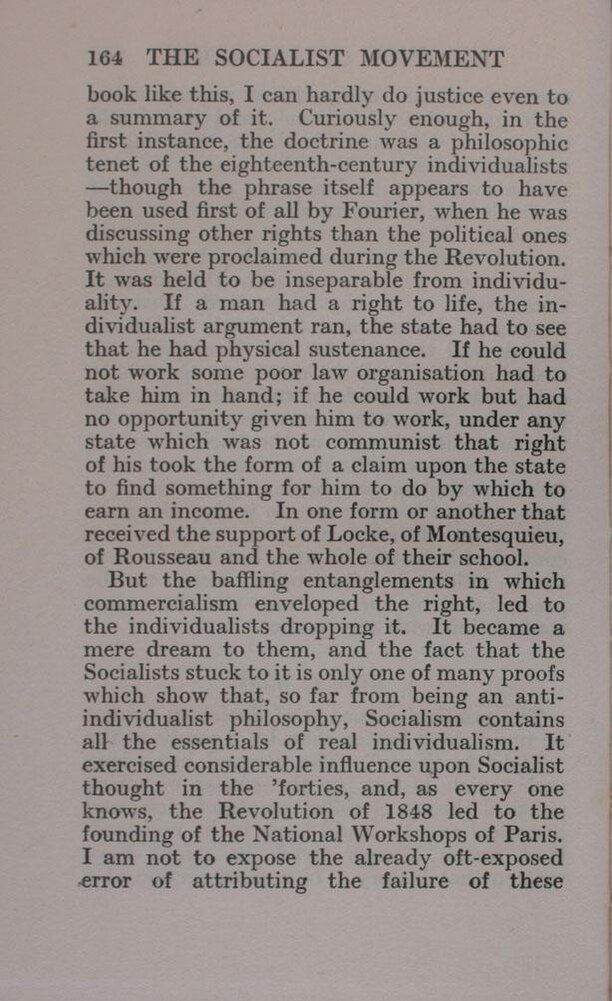book like this, I can hardly do justice even to a summary of it. Curiously enough, in the first instance, the doctrine was a philosophic tenet of the eighteenth-century individualists—though the phrase itself appears to have been used first of all by Fourier, when he was discussing other rights than the political ones which were proclaimed during the Revolution. It was held to be inseparable from individuality. If a man had a right to life, the individualist argument ran, the state had to see that he had physical sustenance. If he could not work some poor law organisation had to take him in hand; if he could work but had no opportunity given him to work, under any state which was not communist that right of his took the form of a claim upon the state to find something for him to do by which to earn an income. In one form or another that received the support of Locke, of Montesquieu, of Rousseau and the whole of their school.
But the baffling entanglements in which commercialism enveloped the right, led to the individualists dropping it. It became a mere dream to them, and the fact that the Socialists stuck to it is only one of many proofs which show that, so far from being an anti-individualist philosophy, Socialism contains all the essentials of real individualism. It exercised considerable influence upon Socialist thought in the 'forties, and, as every one knows, the Revolution of 1848 led to the founding of the National Workshops of Paris. I am not to expose the already oft-exposed error of attributing the failure of these
